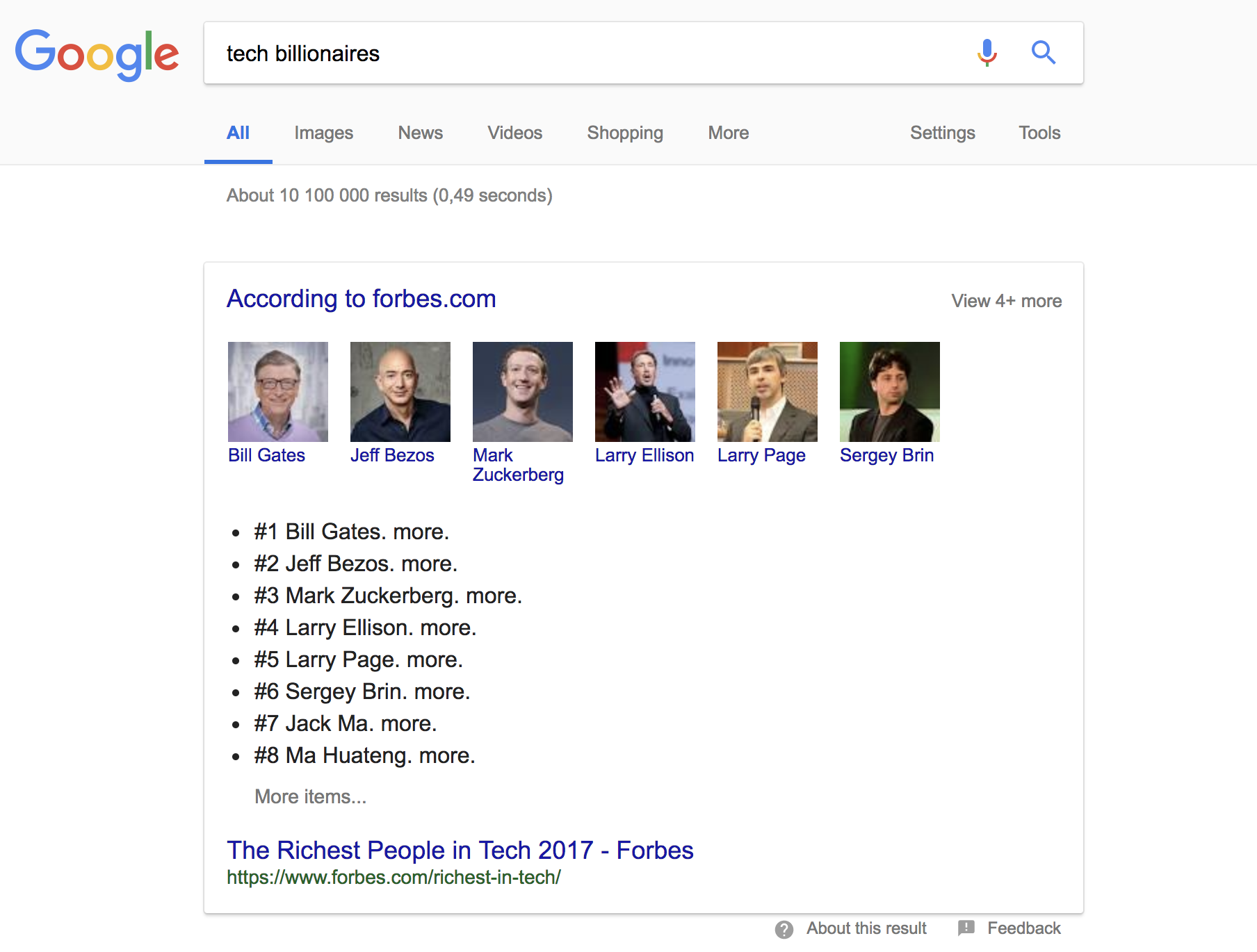Google have recently applied for, and been granted, a patent that has some interesting implications for SEO.
The patent, titled ‘Related entities’ gives webmasters some great insight into how Google delivers related results for search queries.
Before we dive in, let’s look at an example. If you search ‘Facebook CEO’ you’ll get this:

In the bottom section, you’ll see entities related to Zuckerberg: those are Google’s related entities. If you’d like to try it for yourself, search a general query such a ‘UN secretary general’ or ‘US president’.
Even though the query is general, Google will show a specific result (the ‘answer’), along with entities related to that person or thing.
How does Google decide what makes the entities related? And how does it know exactly what related results display for that search query? That’s exactly what the patent elucidates.
While the full explanation of how Google determines related entities are fairly nuanced, here are the key takeaways that give SEOs the most insight:
- The obvious one is that Google finds links between entities when they are related by the same words or phrases. If we look at the example above, Mark Zuckerberg and Bill gates come up as related. In Gates’ case, we’re willing to bet it’s words like ‘tech’ ‘founder’ ‘software’ and even ‘tech billionaires’ that link them (a suspicion that was strengthened by the search below). Content marketers, your spidey senses should be tingling.

- Another item that comes up repeatedly is the occurrence of the names of entities in the same places in the web. This means that if the same entities are mentioned together in many different articles or resources, Google feels it’s safe to assume there must be some significant connection between them.
- Of course it’s also worth mentioning that the patent outlined that authoritative sites, especially those related to a specific subject matter, are given a higher priority in determining the relationships between entities.For example, a Wikipedia page on Zuckerberg that mentions his wife, Priscilla would be considered authoritative and strengthen the relationship between ‘Mark Zuckerberg’ and ‘Priscilla Chan’.
- Finally, according to the patent, there appears to be an actual entity database! Woah. It’s a separate database about which very little was known, but the entity database’s sole purpose is to understand the various entities on the internet, what defines them and exactly how they are linked, connected or dissimilar. This is pretty powerful stuff, as it’s not only keeping a record of all the links and anchors from around the web, it’s taking things further and actually understanding the relationships between entities.
Why You Should Care:
This patent gives SEOs and webmasters significant insights into how Google connects related entities and what it’s going to choose to display for searchers.
This means we now have the opportunity to use our powers to strengthen the association of our site or brand with specific terms and entities. By taking heed of the key ways in which Google relates entities (related words and themes, co-existing in the same articles and resources, appearing together on authoritative websites, etc.) we have the opportunity to play up similarities and strengthen links. This is especially significant for content marketers.
So, if you’re smart about it, you can use related entity optimisation in a similar way to your link building and other SEO efforts: to boost your rankings.
Give the patent a read to get started.
Tags: google, search
Stay In The Know
Cut the clutter and stay on top of important news like this. We handpick the single most noteworthy news of the week and send it directly to subscribers. Join the club to stay in the know…



About Steph Von der Heyde
Our resident wordsmith’s love of digital lured her over from advertising to the online space, where she fell in love with content marketing. Since coming to the online world Steph has made her mark on all outgoing CleverClicks copy and is passionate about using words to build brands. Her obsession with the writing is rivaled only by her love of trail running, yoga and green juice. When she’s not submerged in content strategy you’ll find Steph in Downward Dog.